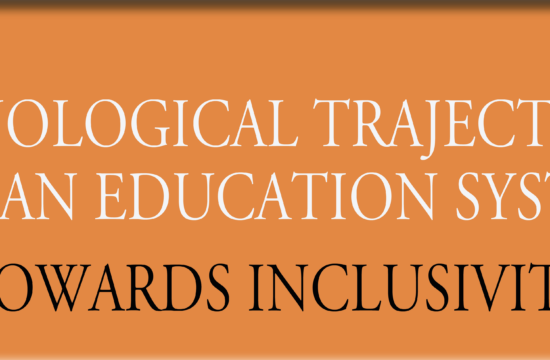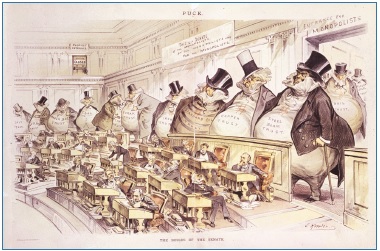Prof. Rasigan Maharajh
Chief Director: Institute for Economic Research on Innovation, Tshwane University of Technology – SOUTH AFRICA
1. On 10 December 1945, the Congress of the United States unanimously resolved to invite the United Nations to establish its permanent home in that country
2. On 14 February 1946, the General Assembly representing Delegates representing 51 nations1 voted to locate the United Nations near New York City. A private citizen of the United States of America, John Rockefeller Jr. bought approximately 69,000 square meters of land and donated the property to the UN.
3. The Philanthropy Roundtable website cites Fosdick, 1956 and Collier and Horowitz, 1976 in support of their claim that by locating the UN in the USA, Rockefeller sought to ensure that the USA would not stray “into mistaken or irrelevant policies, … New York City would enjoy economic benefits, American diplomats would have easy access to counterparts in a convenient location, and U.S. intelligence could keep an eye on foreign officials” (Philanthropy Roundtable, 2024).
4. In November 2021, the New York City Commission on Human Rights acknowledged that “… the land politically designated as New York City to be the homeland of the Lenape (Lenapehoking) who were violently displaced as a result of European settler colonialism over the course of 400 years, the original custodians of these same lands continue to bless the soil past, present and future, and are with us in this very moment” (NYC-HR, 2022).
5. The NYCCHR went further to recognise that “… New York City has one of the largest urban Native American/Indigenous populations in the United States” (NYC-HR, 2022).
6. The NYCCHR also accepted that “… in not centring Native American/Indigenous voices in the work in the past, and as a result has not having appropriately addressed the needs of the communities and their experiences with discrimination.
7. This dynamic exists within the broader context of ruptured relationships between Native American/Indigenous communities and municipal governments, resulting from centuries of state-sanctioned genocide” (NYC-HR, 2022).
8. Yet it is not only the fact that the land currently occupied by the United Nations in New York City was recognised as being property violently expropriated from the indigenous peoples of the territory, various other challenges within world systems and the international relations domain have emerged since the build began on the 24 October 1949. For our purposes, I will refer to just (sic) one such incidence.
9. In 2020, the UN’ First Committee for Disarmament and International Security noted that it is essential for all Member States to participate on equal footing as the UN Charter states (Soliz from Bolivia cited in UN, 2020).
10. In concluding its Programme of Work, the Committee sought to reconvene in either Switzerland or Austria as some delegations maintained that the USA was failing to abide by its host country obligations when issuing visas to UN Member State representatives (UN, 2020).
11. The resolution [L.57/Rev.1] was sponsored by the Russian Federation with the support of Algeria, Belarus, Burundi, China, Cuba, Nicaragua, Syria, Venezuela, and Zimbabwe who further called upon all Member States to “stand as one on the principle of equal rights for all countries” (UN, 2020).
12. The delegation of the Russian Federation however joined the consensus whilst retaining the right to revisit the question should the USA not conform to its obligations as a host country.
13. Today, the United Nations has 193 Member States and two UN General Assembly non-member observer states: the Holy See of Vatican City and the State of Palestine. Our world population has breached 8 billion people, and the balance of economic, social, political, and ecological no longer render world systems as they were at the end of the second world war.
14. Whilst the combined gross domestic product generated by all the economies of the contemporary world systems reached at least US$105 trillion in 2023, different parts of the world contributed diversely (IMF, 2024).
15. Whilst the USA remained the largest capitalist economy with a share of 25.6%, our combined yet uneven development pattern meant that its share was also the more than the sum of the GDPs of 174 countries ranked from Indonesia (17th) to Tuvalu (191st) (Visual Capitalist, 2024).
16. Notwithstanding this massive inequity, the collective value of the GDPs of Brazil, Russia, India, China, and South Africa (BRICS) overtook the combined value of the G7 (Canada, France, Germany, Italy, Japan, the United Kingdom and the United States of America) in purchasing power parity terms in 2020.
17. The BRICS have received over 34 applications for membership and officially now includes Egypt, Ethiopia, Iran, Saudi Arabia, and the United Arab Emirates in 2024.
18. The BRICS+ are currently home to approximately 3.64 billion people or 45.38% of the world’s population whilst generating 28.2% of total global gross domestic product.
19. On the social front, increasing recognition of the real dynamics in international relations praxis has revealed that the notion of a rules-based system does not actually exist.
20. The biased applications of rules to suit the means and ends of maintaining hegemony through unequal exchange persists and is being expanded upon.
21. The genocide of the peoples of Palestine starkly renders the biases of the G7 in strong black and white terms. Intergenerational change is however gaining momentum, as the current generation realises this asymmetry and begins to mobilise against its unjustness.
22. Even inside all G7 countries, young people in the main are organising for solidarity with West Asia and for the freedom of the Palestinians from settler colonial violence.
23. On the political front, the USA and its economic allies are receiving dwindling levels of international support as evidenced in a number of General Assembly votes such as on Cuba, as well as within the UN’ Security Council where it is complicit in the perpetration of Genocide by Israel and in not heeding the provisional measures of the apex judicial instrument of the UN, the International Court of Justice.
24. On the ecological front, all of humanity and the other life-forms with whom we share the Planet are increasingly threatened by accelerating climate change and deteriorating planetary boundaries.
25. We are advancing towards increasing precarity as internation scientific consensus recognises that carbon dioxide emissions are the primary driver of global climate change.
26. Since 1750 up until 1888, the UK was the world’s largest emitter before being overtaken by the USA which would only be overtaken by the PRC in 2020. On a per capita basis, the USA remains the world’s largest polluter.
27. It is upon these facts and data that we must consider relocalising the United Nations organisation to a territory that affords all Member States to participate freely and on an equal basis.
28. With looming ecologic precarity, it is critical that the UN be situated in a space reflective of the current balance of power in economics, politics, and social organisation.
29. Therefore, being in Africa would make most sense as the continent host the world’s future demography.
30. The under-development within and across Africa would also receive the attention it requires due to the public investments that would be necessary to rehouse the General Assembly and the Head Office Staff.
31. The New York office employed the largest number of secretariat staff among the United Nations offices, with 6,500 people whilst almost 22,000 secretariat employees were working in other UN duty stations all over the world in 2022 (UN, 2023).
32. In conclusion, if the UN is serious about being the key vehicle to realise the ‘World We Want’ which would guarantee ‘A Future For All,’ it must be liberated from those forces who seek to maintain and reproduce the unequal world that we don’t want and that only seems to cater for the nearly 776 million citizens of G7 countries where average life expectancies has reached 82 years.
33. The USA has the second highest poverty rate amongst the wider OECD at 18% in 2022 (OECD, 2024).
34. From all we have learnt for our combined pasts, our current situation, and our collective prospects – lets push to relocalise the UN to where it is actually needed and demanded.
References
Collier, P; and Horowitz, D. 1976. The Rockefellers: An American Dynasty, Holt, Rinehart, and Winston, New York.
Fosdick, R. 1956. John D. Rockefeller Jr.: A Portrait, Harper & Brothers, New York.
IMF. 2024. World Economic Outlook Report, International Monetary Fund, Washington.
Maharajh, R. 2008. Global Economic Policy Reform, Chapter 9, in Pressend and Ruiters [editors] Dilemmas of Poverty and Development: A Proposed Policy Framework for the Southern African Development Community, Institute for Global Dialogue, Midrand.
NYC-HR. 2022. Fiscal Year 2022: Annual Report, New York City Commission on Human Rights, New York.
OECD. 2024. OECD Database, Organisation for Economic Co-operation and Development, Paris.
Philanthropy Roundtable. 2024. U.N. Headquarters: Rockefeller Keeps the U.N. in U.S., Almanac Website accessed at https://www.philanthropyroundtable.org/almanac/rockefeller-keeps-the-u-n-in-u-s/
UN. 2019. First Committee Votes to Reject Draft Decision on Relocating Overseas, Unanimously Approving 2020 Work Programme as Session Concludes, 27th Meeting of the Seventy-fourth Session, GA/DIS/3645, 8 November.
UN. 2023. Determined: Report of the Secretary-General on the Work of the Organization, United Nations, New York.
* This article is published simultaneously in PoliTeknik Turkish edition, PoliTeknik International and PoliTeknik Español
- Argentina; Australia; Belgium; Bolivia (Plurinational State of Bolivia); Brazil; Byelorussian Soviet Socialist Republic (Belarus); Canada; Chile; Colombia; Costa Rica; Cuba; Czechoslovakia (Czechia and Slovakia); Denmark; Dominican Republic; Ecuador; Egypt; El Salvador; Ethiopia; France; Greece; Guatemala; Haiti; Honduras; India; Iran; Iraq; Lebanon; Liberia; Luxembourg; Mexico; Netherlands; New Zealand; Nicaragua; Norway; Panama; Paraguay; Peru; Philippine Commonwealth (Philippines); Poland; Republic of China (People's Republic of China); Saudi Arabia; Syrian Arab Republic; Turkey (Türkiye); Ukrainian Soviet Socialist Republic (Ukraine); Union of South Africa (South Africa); Union of Soviet Socialist Republics (Russian Federation); United Kingdom of Great Britain and Northern Ireland; United States of America; Uruguay; Venezuela (Bolivarian Republic of Venezuela); and Yugoslavia (Bosnia and Herzegovina, Croatia, Montenegro, North Macedonia, Serbia and Slovenia). The five Countries in bold indicate permanent members of the UN’s Security Council with the power of Veto.











